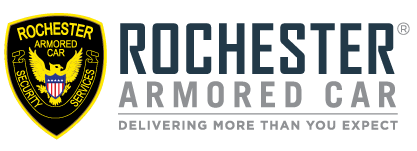Prior to the pandemic, in early February, a PYMNTs.com article, touted “physical banks are putting creative energy (and significant dollars) into spiffing up their digital furniture, the ATM.” The article explained that ITMs are a big part of this push because they offer customers a human connection. Features like automated account opening and instant-issue debit cards make these machines a favorite for customers and financial institutions enjoy that they have more opportunities to reduce labor and better market to customers who choose to visit the branch.
Cut to just a month later, as the pandemic swept the country, and ATMs quickly became one of the preferred ways for consumers to bank safely. Financial institutions that had ITMs in place were without a doubt in a better position than those FIs who didn’t. Both provide a safe way to serve customers, but again, ITMs offer that human connection that just wasn’t accessible as more and more branches were forced to close their lobbies.
Now, many financial institutions are beginning the process of implementing ITMs or increasing the number of units in their markets. As FIs embark upon this complex and expensive task, how do they know their CIT is ready to accompany them?
Here are three questions to ask to know if your CIT is ready for your new ITM program.
Can they adapt?
Just two years ago, Lowers & Associates, published How CIT Carriers Can Build a Successful ITM Program Guide. The guide stated that CITs have to be able to adapt to the new technology in order to maintain their role in cash management. At that time, Rochester was just beginning to see ITMs enter its customers’ landscape with only a handful of ITMs spread across Rochester’s Midwest footprint.
Despite that small number, Rochester recognized that number would only continue to increase because of the versatility ITMs offered FIs. Rochester invested the time and energy needed into training employees on ITMs as well as using the Lowers guide to establish how Rochester would safely and securely serve customers with ITMs. As the technology and systems continue to change, Rochester has continued to quickly adapt in order to serve its customers well.
Do they have the technical know-how?
Much like ATMs, Rochester’s on-the-job training with ITMs has continued. The effort to learn how to better service ITMs is a never-ending effort. ITMs handle complex requests and transactions so it only makes sense that servicing them requires additional knowledge, skill, and time.
Time is especially crucial. Without proper experience, a CIT may fail to understand that ITMs require additional time to properly service. If a CIT fails to build in additional service time into the schedule, the result may very well be frustrated customers.
The Lowers ITM guide states that CITs should anticipate an 18- to 20-minute service time per ITM. Rochester has discovered that as its employees’ experience with and knowledge of ITMs expands its management teams are better at anticipating this and appropriately scheduling. For example, Rochester recently had one customer add a dozen ITMs. With a good understanding of what would be required to service the FIs particular ITM system along with the number being added, Rochester incorporated it into the schedule without any hiccups for the customer or any others.
Are they ready to listen?
As with any new service, it’s important that the FI have a CIT partner who can listen to its plan and help identify what support the FI might need at various stages. A CIT partner can improve the onboarding process of ITMs when given the chance to hear the entire scope of the program from launch to anticipated growth.
As financial institutions build their ITM programs, it’s important for them to understand that the role their CIT partner plays changes. Successfully implementing and maintaining ITMs involves FIs recognizing these complex machines require more from their CIT partner than an ATM.
